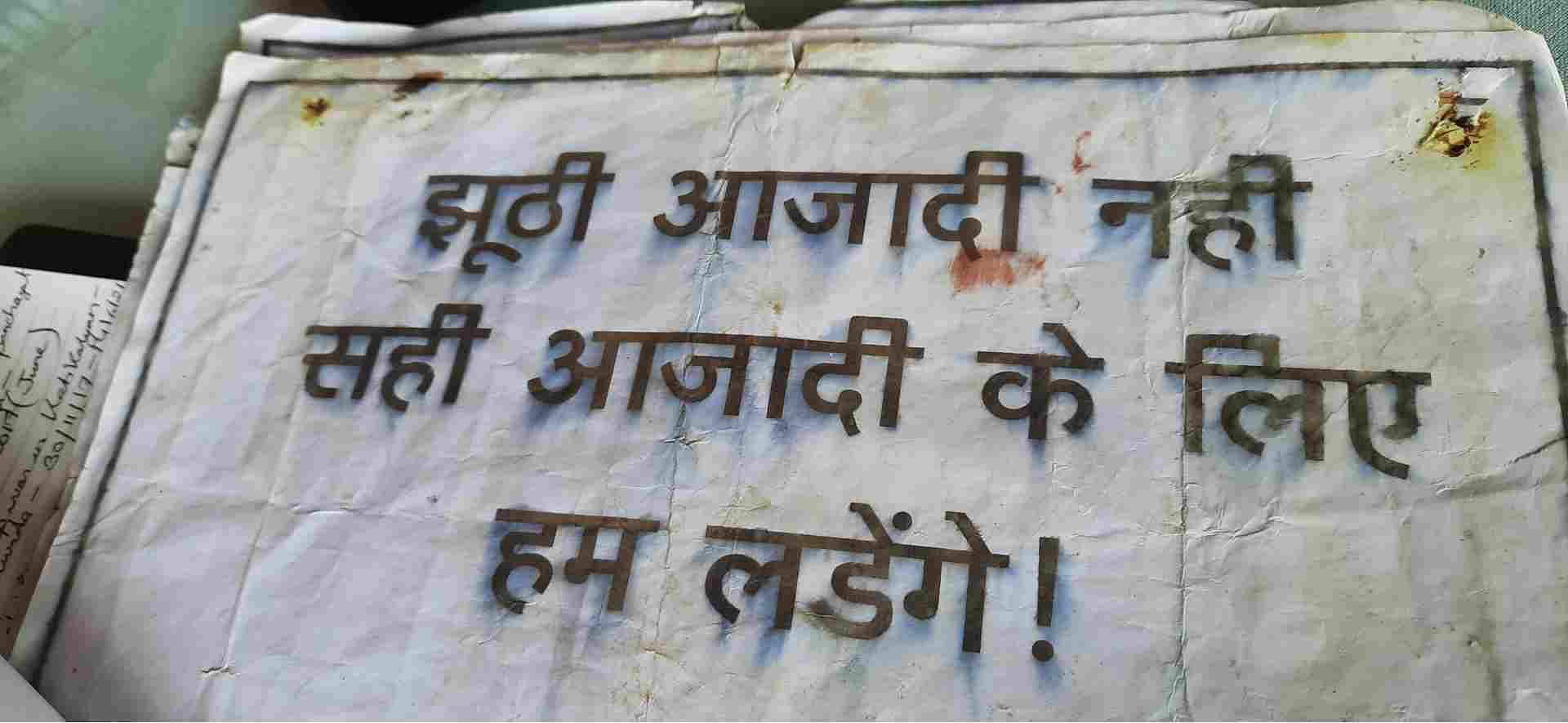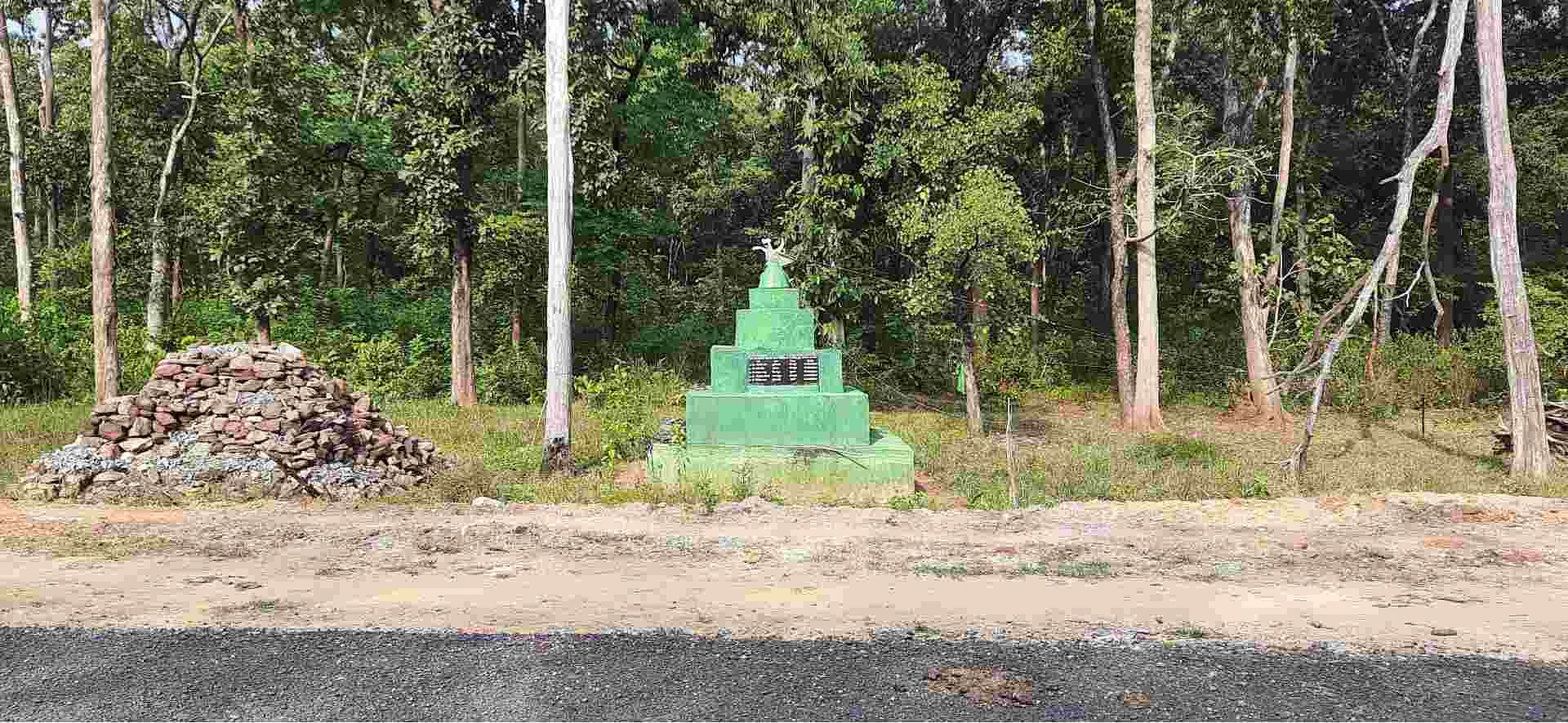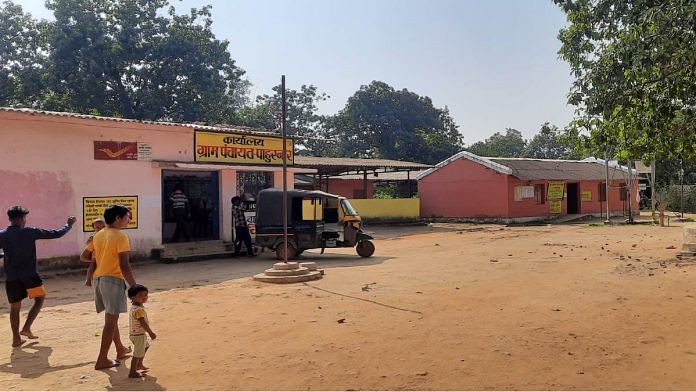Sukma/Bijapur/Dantewada: “Jhooti azaadi nahin, sahi azaadi ke liye hum ladenge (We will fight for independence, the real one).”
The students of a primary school in Cherpal — deep inside the Dantewada district in Chhattisgarh’s Bastar’s division — recently found pamphlets carrying these lines strewn on the floor of their classrooms.
“Adivasi ki hatyaye band karo, band karo, adivasiyon ke narsanghar band karo, band karo (Stop the killings of adivasis, stop their genocide),” reads another.
The Cherpal school holds special significance as Bastar, the heartland of the Maoist conflict, heads to polls on 7 November in the first phase of the Chhattisgarh assembly election.

The school will, after decades, serve as a polling centre — one of 40 voting centres across the seven districts of Bastar division (Kankel, Narayanpur, Kondagaon, Bijapur, Dantewada, Jagdalpur and Sukma) that are being restored to their original locations after being shifted at a distance for security reasons.
This is one of several initiatives taken by the administration and the security forces that are expected to ease Bastar’s rendezvous with democracy this time around.
New roads, security camps and a bridge across the Indravati river promise to provide voters a safe and convenient route to polling booths. There will be over 100 more polling booths, located much closer to the voters they cater to, saving them the long, arduous treks that voting entailed until the last state election in 2018.
However, challenges remain.
With the polling set to take place in one week, the region is replete with accounts of the Naxals trying to make their presence felt as both the state and Union governments push back, seeking to reclaim places where its authority had diminished, and in some cases, disappeared over the years.
Speaking to ThePrint, Bastar range Inspector General (IG) P. Sundarraj said an area of around 6,000 square kilometres (15 percent of the Bastar division) — comprising pockets in south Bijapur, south Sukma, Indravati National Park, Abujhmaad, and south-western Kanker — remains a “security vacuum”.
And as the government walks in to fill the vacuum, it is meeting with attempts to undo the gains.
While pamphlets were the medium in Cherpal, the form of provocation at Pahurnar, also in Dantewada, is different. Here, according to a senior official of the Central Reserve Police Force (CRPF), the Maoists are setting off locally made bombs in the dead of night.
Himanshu Lal, an assistant commandant of the CRPF stationed at the force’s Chhindnar camp by the Indravati river, said the noise of the explosions, amplified by the stillness of Bastar’s wilderness, is designed to spread fear among the local residents ahead of the election.
These “sutli bombs” are also used by the Maoists to get the forces to open fire and exhaust their ammunition during ambushes, said a CRPF head constable posted at a camp located near the Mahadev valley in the Bijapur district.
At the Sukma-Bijapur border, meanwhile, the Maoists have gone a step ahead, according to the teacher of a residential school meant for tribal students enrolled in primary classes.
“In August, they pelted the school with big stones, damaging the window panes. Luckily, the kids who sleep in those rooms were not inside around that time,” said Ramu Kunjam, who teaches English at the school located in Tarrem.
IG Sundarraj said, compared to the 2018 Chhattisgarh assembly polls, 126 more polling stations are being opened in the region this time. In total, 2,900 polling stations will cater to Bastar’s electorate this time.
“Out of these 126, 40 are those polling stations which were earlier shifted to the nearest police stations or near security camps for security reasons,” he added.
“This time, we are reshifting them to their original spots so that more and more voters can come out and participate in the polling process. It could be made possible since we have opened 65 new camps in the last five years in LWE (Left-wing extremism) stronghold areas,” Sundarraj said.
Also Read: Chhattisgarh BJP to Amit Shah — Modi charisma not enough, need strong local face to counter Baghel
Development, camps & some resentment
The security camps, which dot the forested and sparsely populated landscape of Bastar, have been set up for the purpose of expanding the all-weather road network in the region to boost connectivity and area domination by the security forces.
According to official records, roads measuring 1,900 kilometres have been constructed in the last five years in Bastar.
The camps, which are also acting as a springboard for scaling up the presence of the administration, are reportedly a subject of some resentment in a section of local residents, although security personnel attribute such protests to Maoist pressure.
A resident of Silger village in Sukma, when asked about the ongoing road expansion project between Bijapur’s Basaguda and Sukma’s Jagargunda, shrugged, “At what cost?”
“Do you see that memorial?” he added, pointing to a green structure on the roadside comprising slabs of stone in a pyramid shape and bearing a black plate inscribed with some names.

On this stretch, there is one security camp nearly every five kilometres, if not less.
In May 2021, a protest meeting of the adivasis against the establishment of a camp at Mokur near Silger swelled to a gathering of thousands.
Security personnel opened fire, resulting in the death of three protesters, who were later described as Maoists.
Later, one pregnant woman, who suffered injuries during the ensuing stampede, also died, residents claimed.
The memorial the Silger villager was pointing at names the deceased — Ursa Bheema, Uika Pandu, Kowasi Wagah, and Punem Somali. It names a fifth person — Midiyam Masa — who the Maoists claim was also a victim of the “excesses of security forces”.
Added the villager, “They are dead because they resisted the setting up of one such camp.”
But for the men in uniform, the very act of setting up these booths, where polling officers will be flown in from Raipur via helicopters, is a mark of progress in the fight against the Maoists. One helipad has been created right next to a police post at Tarrem near Silger for this purpose.
A few metres away from the Tarrem police post, two polling stations have been opened in the primary school targeted by the Maoists in August.
The booths have been opened for the villagers of Kondapally and Tarrem, which fall under the Bijapur constituency, where the Congress’s Vikram Mandavi, the incumbent MLA, is contesting against the BJP’s Mahesh Gagada.
“It shows the strides made by the Indian State in expanding the footprint of democracy,” said Akhilesh Behera, a member of the Chhattisgarh Special Task Force (STF) deployed in Silger to assist the CRPF.
He added, however, that “many won’t be able to vote this time and that reflects the long road ahead in surmounting the challenges”.
The prolonged presence of the Maoists in the area has set it back by over two decades, CRPF Assistant Commandant Rahul Jadhav, also deployed in the Silger camp, which was made functional on 28 January 2023, said.
“This route (Bijapur-Jagargunda) was known for its robust tamarind trade. Now it is in ruins. Even the local school building was blasted. We have set up a makeshift school in the camp where 65 children are enrolled in primary classes,” said the young officer who belongs to Maharashtra.
“A free health centre has also been started to win hearts and make the adivasi villagers realise that we are not here to harass them.”
Also Read: BJP springs a surprise with 1st candidates’ list for MP, Chhattisgarh polls. What’s behind move
‘No reason why I won’t vote’
As acknowledged by Behera, despite the authorities setting up these new polling booths in areas of Bastar division that were once considered “liberated zones” under the influence of the Communist Party of India (Maoist), many intended beneficiaries will not be able cast their vote on 7 November.
Mana Korsha (45) of Silger village is one such example.
Korsha could have been the poster boy of the “triumph” of Indian democracy in the Bastar division, where all the seven districts are considered LWE-affected by the Ministry of Home Affairs.
He is a Gondi adivasi living on the margins, his only source of livelihood is a small patch of land where he grows paddy. He could never vote in elections owing to the Maoist insurgency, which prevented authorities from setting up polling stations near his village.

Now, a freshly painted primary health centre — built under the government’s National Health Mission and located next to Korsha’s mud hut — will double up as a polling booth for the villages of Puwarti and Silger.
However, Korsha does not have a voter ID, nor does his name figure in the electoral rolls for Konta, the assembly constituency under which Silger falls, and where the incumbent MLA, Congress’ Kawasi Lakhma, is pitted against the BJP’s Soyam Muka.
“I don’t even have an Aadhaar card. My father had voted in the 1993 assembly polls when Chhattisgarh was a part of the undivided Madhya Pradesh by trekking at least 25 kilometres to the nearest booth at Jagargunda,” Korsha told ThePrint.
At Pahurnar in Dantewada, the few villagers, such as Katte Netam (80), who ventured out to vote on polling days in the past had to cross the Indravati river to reach the nearest election centre at Chhindnar. Most chose not to, either out of fear of the Maoists, or out of plain unwillingness to make the long trek.
On 25 January 2022, a bridge was opened across the Indravati river, making it possible for the administration to enter these villages, where the Maoists continue to wield considerable influence.
Kala Ram Netam, (in his 40s) who identifies as a Halva adivasi, said, given a choice, the villagers of the area would overwhelmingly vote for Congress candidate Chavindra Karma, the son of Mahendra Karma, the principal force behind the now-outlawed anti-Maoist vigilante group Salwa Judum.
Mahendra Karma was among the Congress leaders killed by the Maoists in a bloody ambush in 2013. The BJP has fielded Chetaram Arami from the seat.
In 2018, Dantewada was the only seat in the Bastar region to have gone to the BJP. But a year later, ahead of the Lok Sabha elections, BJP MLA Bhima Mandavi was killed in a Naxal attack. In the resultant bypoll, Devaki Karma, the wife of Mahendra Karmahad won the seat, making the Congress’ sweep of the region complete.
“No party comes here to campaign. But we feel attached to the family of Mahendra Karma so may vote for his son. Some years ago, this sentiment was shared by everyone but the new generations feel otherwise,” added Netam, who is a farmer and also draws financial sustenance by selling forest produce such as tendu leaves and mahua.
“They are more inclined towards the BJP,” he added.
In the areas where polling booths have been opened for the first time in decades, the sights and sounds that characterise the noisy electoral battles elsewhere are largely missing. Instead, a sense of cautious optimism, laced with anxiety, appears to have gripped the populace and the administrative machinery of these areas.
But Katte Netam is looking forward to voting. Instead of having to make that arduous trek through the wild, which would be followed by a boat ride across the Indravati river, in the previous elections, all that she has to do this time is hop across the road from her front yard to the panchayat office.
“When I could vote all these years, there is no reason why I will not vote this time,” she said.
(Edited by Sunanda Ranjan)
Also Read: In Chhattisgarh, Bastar now poll battlefield as BJP targets Baghel govt over party workers’ deaths



